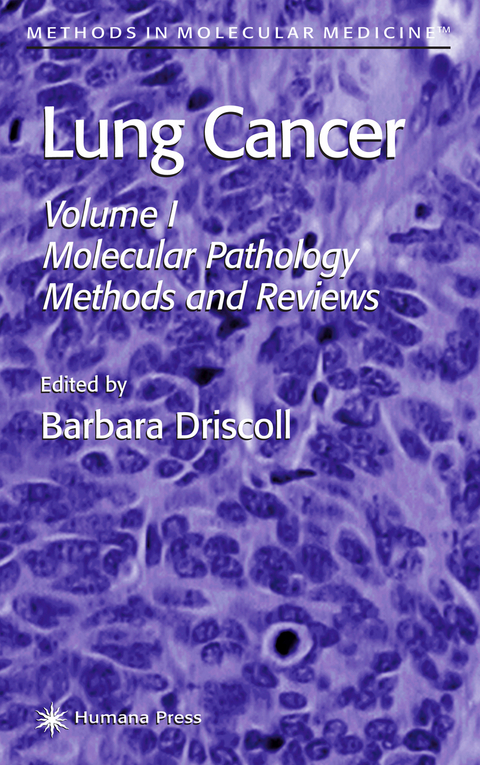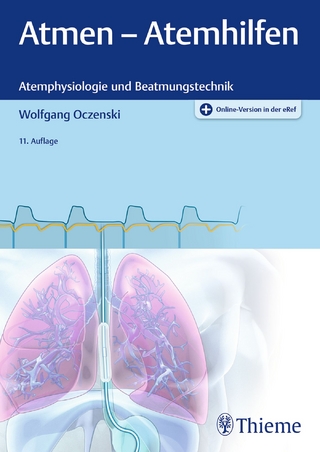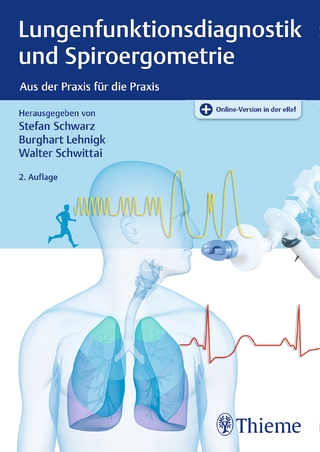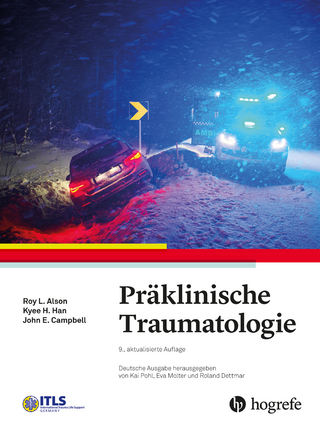
Lung Cancer
Humana Press Inc. (Verlag)
978-0-89603-985-8 (ISBN)
Characteristic Genetic Alterations in Lung Cancer.- Etiology and Classification of Lung Tumors.- Clinical and Biological Relevance of Recently Defined Categories of Pulmonary Neoplasia.- Molecular Epidemiology of Human Cancer Risk.- Neuroendocrine Phenotype of Small Cell Lung Cancer.- AIDS-Associated Pulmonary Cancers.- Molecular Abnormalities in Lung Cancer.- Abrogation of the RB-p16Tumor Suppressor Pathway in Human Lung Cancer.- Sensitive Detection of Hypermethylated p16INK4a Alleles in Exfoliative Tissue Material.- Role of Receptor Tyrosine Kinases in Lung Cancer.- Relationship of EGFR Signal-Transduction Modulation by Tyrosine Kinase Inhibitors to Chemosensitivity and Programmed Cell Death in Lung Cancer Cell Lines.- Detection of the Transcripts and Proteins for the Transforming Growth Factor-? Isoforms and Receptors in Mouse Lung Tumorigenesis Using In Situ Hybridization and Immunohistochemistry in Paraffin-Embedded Tissue Sections.- Alterations in the Expression of Insulin-Like Growth Factors and Their Binding Proteins in Lung Cancer.- Screening of Mutations in the ras Family of Oncogenes by Polymerase Chain Reaction-Based Ligase Chain Reaction.- Assays for Raf-1 Kinase Phosphorylation and Activity in Human Small Cell Lung Cancer Cells.- ?-Glutamylcysteine Synthetase in Lung Cancer.- Localization of Cyclooxygenase-2 Protein Expression in Lung Cancer Specimens by Immunohistochemical Analysis.- Non-RI Protocols for L-myc Allelotyping and Deletion Mapping of Chromosome 1p in Primary Lung Cancers.- Intercellular Adhesion Molecules (ICAM-1, VCAM-1, and LFA-1) in Adenocarcinoma of Lung.- MUC1 Expression in Lung Cancer.- Altered Surface Markers in Lung Cancer.- Prognostic Relevance of Angiogenic, Proliferative, and Apoptotic Factors in Lung Carcinomas.- MorphologicalAssessment of Apoptosis in Human Lung Cells.- [D-Arg6, D-Trp7,9, NmePhe8]-Substance P (6-11) Activates JNK and Induces Apoptosis in Small Cell Lung Cancer Cells via an Oxidant-Dependent Mechanism.- Isolation of Cells Entering Different Programmed Cell Death Pathways Using a Discontinuous Percoll Gradient.- Angiogenesis, Metastasis, and Lung Cancer.- Matrix Metalloproteinase Expression in Lung Cancer.- Vascular Endothelial Growth Factor Expression in Non-Small Cell Lung Cancer.- Regulation of Angiostatin Mobilization by Tumor-Derived Matrix Metalloproteinase-2.- In Vitro and In Vivo Assays for the Proliferative and Vascular Permeabilization Activities of Vascular Endothelial Growth Factor (VEGF) and Its Receptor.- Detection of Telomerase Activity in Lung Cancer Tissues.- Analysis of Alterations in a Base-Excision Repair Gene in Lung Cancer.- Lung Cancer Model Systems.- Induction of Lung Cancer by Passive Smoking in an Animal Model System.- Metastatic Orthotopic Mouse Models of Lung Cancer.- Lung-Specific Expression of Mutant p53 as Mouse Model for Lung Cancer.- Use of Nucleotide Excision Repair-Deficient Mice as a Model For Chemically Induced Lung Cancer.- Nude Mouse Lung Metastases Models of Osteosarcoma and Ewing ’s Sarcoma for Evaluating New Therapeutic Strategies.- Tumor-Specific Metastasis to Lung Using Reporter Gene-Tagged Tumor Cells.- Cultures of Surgical Material from Lung Cancers.- The Hollow Fiber Assay.
| Erscheint lt. Verlag | 15.10.2002 |
|---|---|
| Reihe/Serie | Methods in Molecular Medicine ; 74 |
| Zusatzinfo | XXI, 594 p. |
| Verlagsort | Totowa, NJ |
| Sprache | englisch |
| Maße | 155 x 235 mm |
| Themenwelt | Medizinische Fachgebiete ► Innere Medizin ► Pneumologie |
| Medizin / Pharmazie ► Medizinische Fachgebiete ► Onkologie | |
| ISBN-10 | 0-89603-985-4 / 0896039854 |
| ISBN-13 | 978-0-89603-985-8 / 9780896039858 |
| Zustand | Neuware |
| Informationen gemäß Produktsicherheitsverordnung (GPSR) | |
| Haben Sie eine Frage zum Produkt? |
aus dem Bereich


